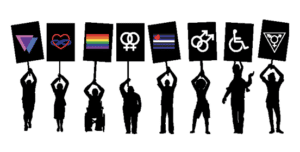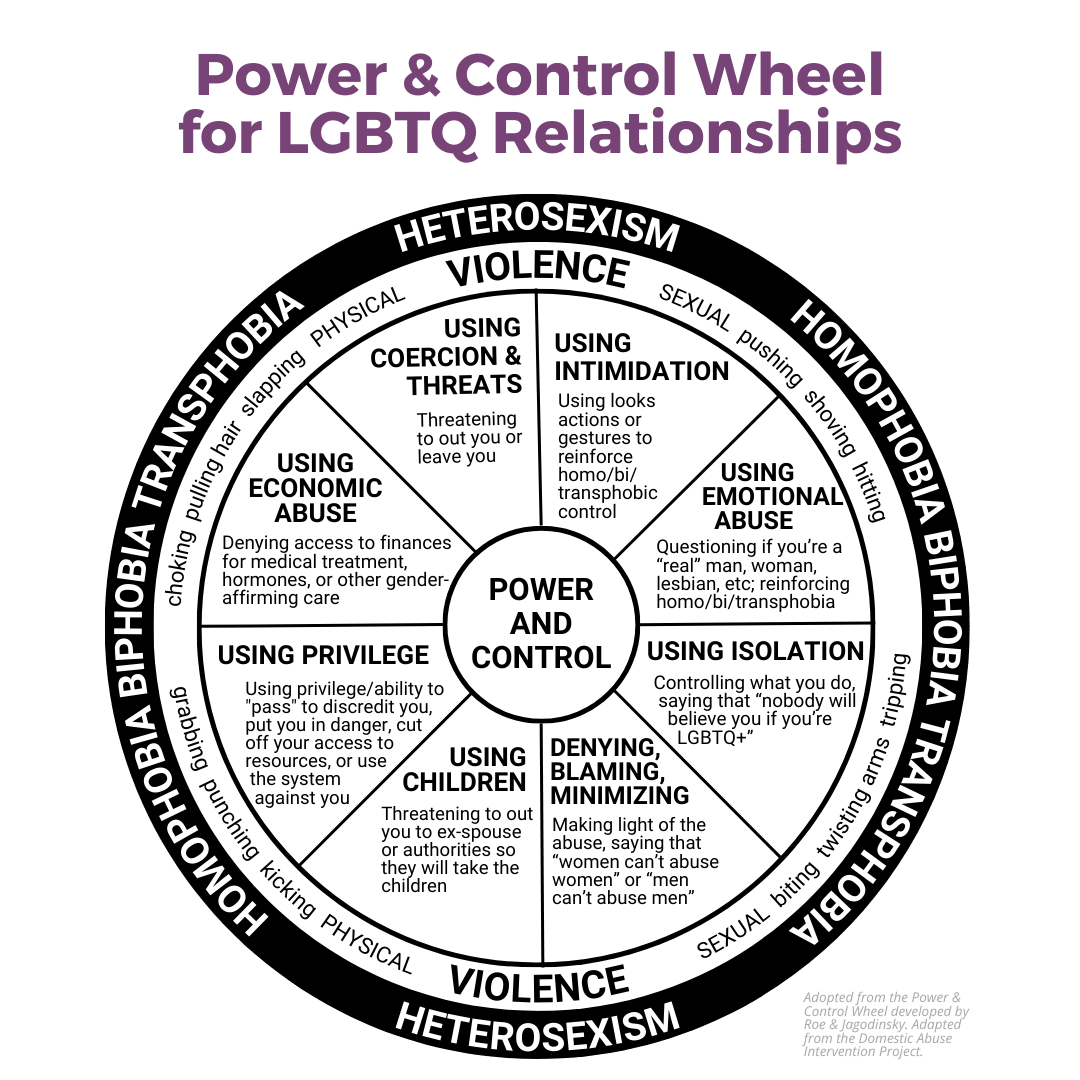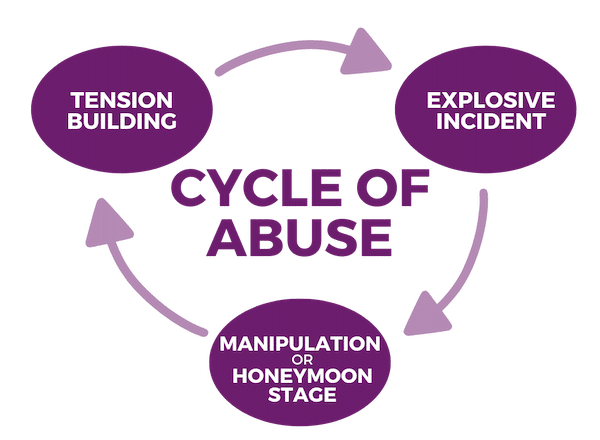Bisexuality and Partner Abuse

Definitions
What is bisexuality? Bisexuality means being attracted to more than one gender.
What is partner abuse? A systematic pattern of behaviors where one person non-consensually uses power to try to control the thoughts, beliefs, actions, body, and/or spirit of a partner.
Consent: Consent is an essential part of healthy relationships. Even if you have consented to something in the past, you can always change your mind and should be given the space to process and communicate it.
It’s not consent if…
- you were pressured, coerced, or forced into agreeing to it.
- you did not expressly give consent.
- you are afraid to say no.
- you said yes to avoid conflict.
- you say yes to avoid consequences.
Dispelling myths:
- Abuse is not about size, strength, or who is more “masculine.” Anyone of any gender can be abusive.
- Abuse is not just about physical violence, it’s about controlling the other person. Abusive people can use physical, emotional, economic, sexual, cultural and identity tactics to control their partners. Abuse crosses all social, ethnic, racial, age, and economic lines. You can’t tell if someone is being abusive or being abused by their race, size, age, strength, class, gender identity and expression, religion, politics, or personality.
- Abuse is never mutual. Although both partners may use violence, abusive people do so to control their partners; a survivor may use violence in self-defense or to try to stop the abuse.
- Abuse can happen regardless of the length of relationship or living situation. It doesn’t matter if you live together or just started dating.
- Abuse tends to get worse over time. Couples counseling, anger management, Alcoholics Anonymous, and communication workshops do not help abusers stop abusing and can be dangerous for the survivor.
If you or someone you know is in an abusive situation and needs help, please call our Safe Futures 24/7 Confidential Hotline at (860) 701-6001 or text CT Safe Connect at (888) 774-2900. All services are free and confidential.
Does your partner:
• Get jealous of people in your life?
• Make fun of you for being bisexual?
• Try to control how you dress or act?
• Force you to identify as a certain sexuality?
• Accuse you of cheating or flirting with others?
• Use money or gifts to make you feel like you owe them something?
• Prevent you from being out as bisexual?
• Not respect your safeword?
• Pressure you to have sex in ways that you don’t want to?
• Keep you from going to LGBQ/T events?
Tactics of abuse
Physical abuse:
• Hitting, punching, shoving, etc.
• Threatening to harm or kill you.
• Taking away your wheelchair, crutches, hearing aids, etc.
Emotional abuse:
• Making you believe you’re mentally unwell.
• Blaming everything on you.
• Not letting you be alone with friends or family.
• Controlling what you do.
Sexual abuse:
• Forcing you to have sex when you don’t want to.
• Forcing you to recount past sexual experiences.
• Posting or sharing nude photos or videos without your permission.
• Spreading sexual rumors about you.
Cultural/Identity abuse:
• Using oppressive words or slurs in regards to identity.
• Threatening to out you
• Shaming you for being bisexual.
• Isolating you from your community.
Economic abuse:
• Getting you fired from your job.
• Controlling the money.
• Running up bills in your name.
Abusive partners might say:
• “I know I can’t trust you alone with your friends because you’ll sleep with anyone.”
• “You aren’t really part of the LGBQ/T community.”
• “If you leave me, I’ll tell your boss that you are bi.”
• “I know that all you bisexuals are just sluts.”
• “You are just confused about your sexuality.”
• “If you want to be with me, you have to be a lesbian.”
• “Don’t tell anyone that you’ve been with men before, that’s disgusting.”
• “I know you are going to leave me for a woman,” or “I know are going to leave me for a woman,” or “I know you are going to leave me for a man.”

Download the Equality Wheel to learn about the components of healthy relationships.
Cycle of Abuse
Some survivors, but not all, experience a cyclical pattern in the abuse. Even if this does not represent your relationship, it’s typical to have periods of time when there is relative peace and good times even in abusive relationships. If this sounds familiar to you, you can get support.
Tension Building: The abusive partner starts to use subtle controlling behaviors. You might feel like you are walking on eggshells. Survivors often become aware of their own behavior and try to do things to avoid conflict or “not get in trouble.”
Explosive Incident: The abusive partner uses a tactic or multiple tactics of abuse to control you. At this point, you may be ready to leave or start questioning the relationship.
Manipulation or Honeymoon Phase: The abuser might be charming and charismatic, reminding you of why you fell in love. If there is an apology, it feels sincere. Your partner may blame the abuse on alcohol, drugs, or stress. They may say, “This will never happen again.” Or, the abusive partner may threaten you or those you love if you try to leave or report the abuse. Some abusers will try guilt-tripping and other forms of manipulation to get you to stay.

Many thanks to The Network/La Red, Boston, MA and the Massachusetts Office for Victim Assistance for sharing resources with us.
If you or someone you know is in an abusive situation and needs help, please call our Safe Futures 24/7 Confidential Hotline at (860) 701-6001 or text CT Safe Connect at (888) 774-2900. All services are free and confidential.
Learn more:
For more information and resources, go to:
tnlr.org
outct.org
Download our Bisexuality And Partner Abuse Brochure
